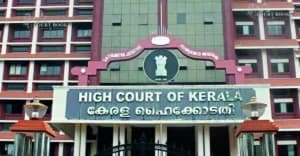A short but rather charged hearing unfolded on Thursday at the Delhi High Court, where a woman informer challenged the government’s refusal to grant her a reward for tipping off tax evasion by M/s Shakti Enterprises. The bench, sitting in hybrid mode, repeatedly questioned whether such a petition could even be entertained.
Background
The petitioner claimed she played a key role in exposing alleged GST evasion by Shakti Enterprises. Her information, she said, led to a show-cause notice in July 2023 and later a detailed order-in-original dated 6 December 2023, where substantial tax demand and penalties were imposed.
But things changed significantly in appeal. In July 2024, the Commissioner (Appeals) set aside penalties on the partners and scaled down several tax components. Only a small residual demand survived. According to the petitioner, this revision drastically reduced her chances of receiving the informer reward under the 31 July 2015 notification issued by the Anti-Smuggling Unit of the CBEC.
Court's Observations
Right at the start, Justice Prathiba M. Singh asked the petitioner’s counsel how an informer whose role is not that of a complainant or affected party could claim a legal right to receive a reward.
The bench observed,
“The grant of reward is a discretionary exercise. An informer cannot challenge an adjudicatory order merely because it affects the quantum of reward.”
There was a mild pause in the courtroom as the judges made it clear that an informer cannot transform into a contesting party against the assessee. The Court hinted that the petitioner might be overstepping her legal standing.
When counsel argued that the department miscalculated taxable value by ignoring TDS deposits from several clients of Shakti Enterprises, the judges did not appear convinced. The government’s counsel, meanwhile, leaned on the Supreme Court’s judgment in Union of India v. C. Krishna Reddy, asserting that
“a writ of mandamus cannot be issued at the behest of an informer.”
Decision
Before deciding the maintainability issue, the Court directed that the informer herself must appear in person at the next hearing. A notarised affidavit submitted in sealed cover was accepted and kept with the Registry.
The matter will now be taken up on 18 December 2025, with the Court set to hear arguments strictly on whether such a writ petition can survive at all.
Case Title:- XY v. Union of India
Case Number: W.P.(C) 15498/2025
Order Date: 9 October 2025














